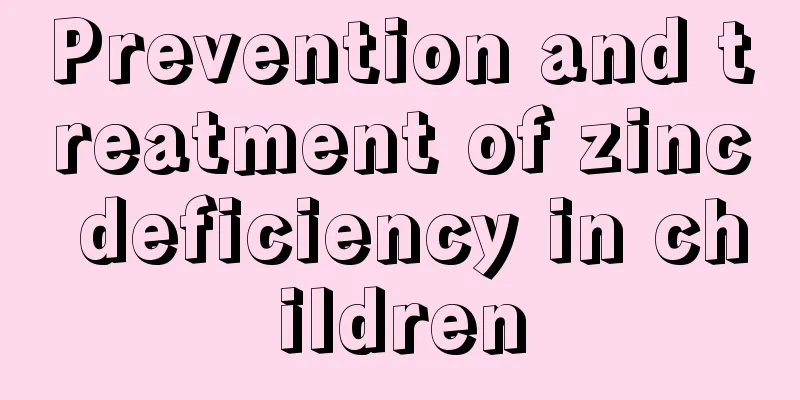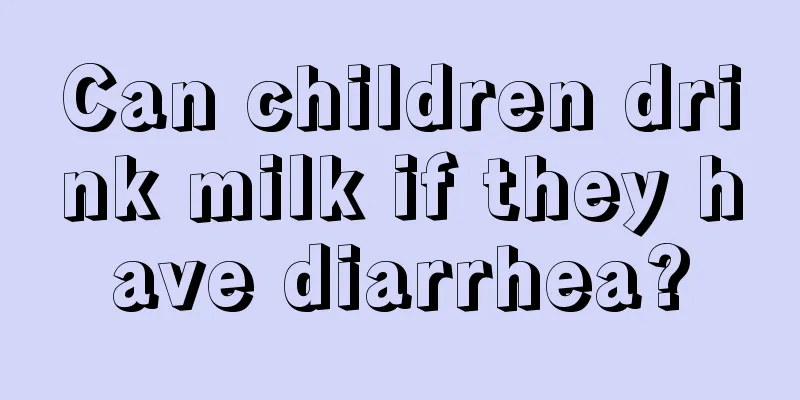Prevention and treatment of zinc deficiency in children

|
As we all know in life, children in the growth and development period need to supplement sufficient amounts of zinc. For a child, if the body lacks zinc, it will be very harmful, because zinc is very important for children. Zinc deficiency will not only cause children to be anorexic and picky eaters, but also affect their intellectual development. It will also destroy the baby's immunity and make the baby's resistance weak. So how can children prevent and treat zinc deficiency?
Reduces appetite Zinc is an indispensable element of salivary protein. If the baby's body does not contain enough zinc, it will affect his or her taste sensitivity, and cause problems such as loss of appetite, partial eating, and picky eating. Rough skin The zinc contained in the skin accounts for one-fifth of the zinc content in the human body, and has anti-radiation and light protection effects. Babies who are zinc deficient have drier and rougher skin than normal babies and have a higher incidence of skin diseases. Recurrent oral ulcers The synthesis of collagen and the growth of epithelial tissue are both inseparable from zinc. Therefore, if the baby is zinc deficient, the wound will not heal easily and oral ulcers will easily recur. Affects bone development If the zinc content in the body is insufficient, the cell differentiation rate will slow down, which will in turn hinder the formation of cartilage and hardening of bones, and the growth rate will be significantly reduced. Reduced immunity Zinc is one of the important elements of human immune function. If the content in the body is insufficient, the immune function will be reduced, which will make the baby susceptible to external infections and further cause colds, bronchitis and other diseases. Hindering intellectual development Zinc affects your baby's brain development and memory function. Generally speaking, children who are zinc deficient have worse memory than normal children.
The most natural way to get zinc is from food. Breastfeeding Exclusive breastfeeding is encouraged for babies within 6 months, and breastfeeding is recommended until the baby is 2 years old and above. Because 62% of the zinc in breast milk can be absorbed, which is incomparable to cow's milk, and the zinc content in colostrum is four to seven times that of serum zinc. Supplement zinc-rich foods Relevant data shows that animal foods contain relatively high levels of zinc, and about half of the zinc can be absorbed by the human body. This is because the protein in food can be broken down into amino acids, which assist in the absorption of zinc. If the baby is bottle-fed or mixed-fed, then after 4 months you can add some zinc-rich complementary foods, such as minced lean meat, walnut kernel powder and other foods.
When a child is 4 years old, the zinc obtained from daily diet is enough to meet the body's needs. If we do not pay attention to the rationality of the dietary structure, children are likely to develop bad habits of being picky eaters and having anorexia. The correct way to supplement zinc for children is to mix coarse and fine grains to achieve a balanced diet. After children turn four, their daily diet should provide them with adequate amounts of zinc. Children's diet should be arranged reasonably, with diversified and nutritionally balanced menus to stimulate their appetite. Sweets are not good for children's zinc supplementation, so the amount of sweets they consume should be controlled as much as possible on a daily basis. Zinc supplementation Before giving your child zinc supplements, be sure to have the child checked at the hospital. Only after a confirmed diagnosis can zinc sulfate syrup or zinc gluconate be used. The general medication period should be limited to two to four months, and the medication should be stopped promptly after the zinc content returns to normal. What needs attention is that zinc supplementation should be proper and not excessive, otherwise it can easily cause human poisoning and induce a series of diseases such as iron deficiency and anemia. |
<<: What are the symptoms of zinc deficiency in a 3-year-old baby?
>>: What to eat to supplement zinc for babies who are zinc deficient
Recommend
Is Yinzhihuang harmful to babies?
Most babies will show yellowing signs on their bo...
Can babies eat shrimp when they have a fever?
A baby's fever is a symptom that worries pare...
What causes children to dream so much?
Everyone dreams, and dreaming is a very normal ph...
Which department should children with ADHD see?
ADHD is common in daily life. Many children suffe...
What should I do if my child has a fever or a cold?
Cold and fever are one of the most common childho...
What should I do if my child has a high fever and bacterial infection?
Fever is very common in daily life. Studies have ...
My baby farts a lot without pooping for a day
Many mothers will be particularly careful when fe...
Reasons for baby's rib valgus
You may not know that the symptoms of baby's ...
What are the signs that a four-month-old baby is smart?
It is not an easy thing for a woman to get pregna...
Newborn baby herpes
The health of a newborn baby is very important. F...
Should newborns sleep with pillows?
Pillows are very important sleeping tools in peop...
29-month-old baby development indicators
After birth, as the child grows day by day, the c...
How to clean up excessive earwax in children
Nowadays, young parents are more concerned about ...
How to treat baby's prickly heat
Summer is the peak season for baby prickly heat, ...
What should you pay attention to if your baby falls out of the bed?
When the baby is able to move, the mother should ...









